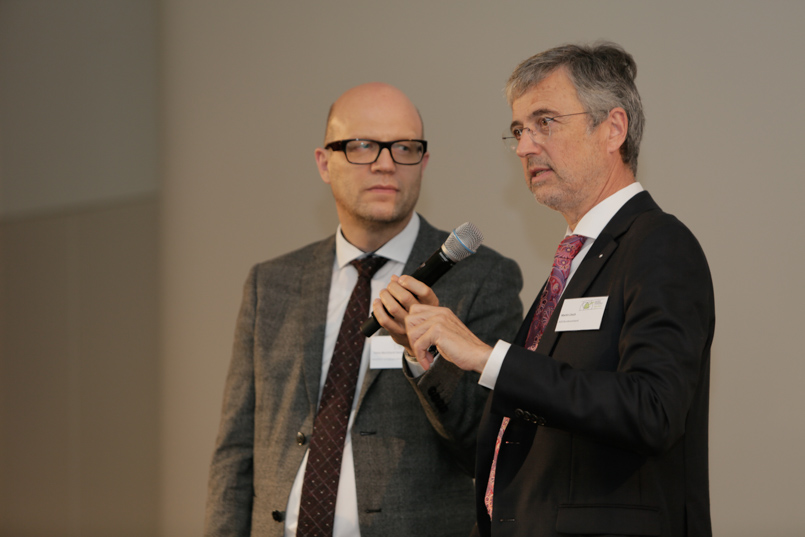
Martin Litsch (right) with moderator Hans-Bernhard Henkel-Hoving
Two years after the eHealth Act, this year’s symposium dealt with the current status of eHealth in Germany. While day one was characterised by varied presentations and panel discussions, day 2 was primarily dedicated to the presentation of projects. Professor Dr Guido Noelle, Managing Director of gevko GmbH, highlighted in his welcome address the written greeting of Jens Spahn, the Federal Minister of Health, in which the latter expressed the urge for more speed in the electronic patient plan, with hopes that the symposium would contribute to achieving this goal and increase opportunities for the digitalisation in health care.
The keynote speaker, Martin Litsch, Chairman of the Management Board at the AOK Federal Association, emphasized the importance of collaboration between health insurances in order to achieve an electronic patient plan. He believed that competition between health insurances should not be at the technology level, but rather at application level. Patients should be involved in the electronic communication process of health insurances. This would empower them to donate their data for research purposes. 2021 is the deadline set to achieve these goals.
The introduction of TSVG (Appointment Service and Care Act) in 2019 is expected to be the basis of further developments by 2021. Dr Stefan Bales, Ministerialrat at the Federal Ministry of Health, stressed the importance of TSVG as the next legal step rather than waiting for the second eHealth Act.
A panel discussion, with the title “How much eHealth Act 2.0 does the country need?“ and participation by two members of the Federal Parliament Health Committee, provided the opportunity to further discuss issues including artificial intelligence, precision medicine, assessment of apps and medication plan.
As Professor Noelle appropriately stated: “We need a Google Maps for patients”.
Glossary:
vesta is the interoperability registry for the German health care system established under the German Code, Book Five, section 291e (§ 291e SGB V).
